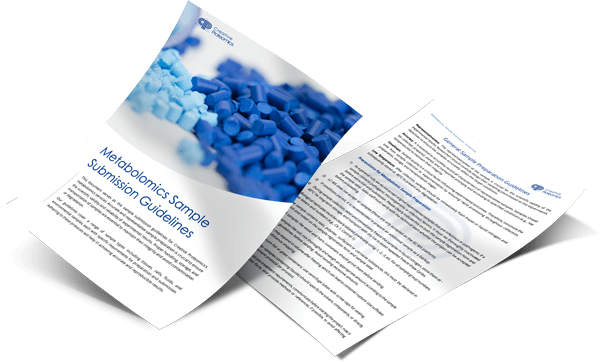What Are Cytokinins
Cytokinins (CTK) are a class of phytohormones that play crucial roles in plant growth and development. They are primarily involved in regulating cell division, differentiation, and interactions with other plant hormones. They were previously referred to as "cell division factors," and the term "cytokinin" is derived from "cytokinesis," which is the process of cell division. These hormones are predominantly found in regions where active cell division occurs, such as the apical meristem of stems, root tips, immature seeds, germinating seeds, and developing fruit.
Types And Structure of Cytokinins
Cytokinins are derivatives of adenine. Various forms of cytokinins are generated by substituting hydrogen atoms at the 6th amino position, the second carbon atom, and the 9th nitrogen atom of adenine.
Cytokinins can be categorized into two main classes: natural and synthetic. Naturally occurring cytokinins in plants include zeatin (ZT), dihydrozeatin, isopentenyl adenine, zeatin riboside, and isopentenyl adenosine. They are primarily synthesized in the root tips. In addition to these natural forms, there are synthetic cytokinins, including 6-benzylaminopurine (6-BA) and thidiazuron (TDZ).
All CTKs are essentially adenine derivatives, except for diphenylurea. They are organic compounds with a nitrogen-containing ring, making them polar and soluble in water. Most cytokinins are stable, but they may degrade under conditions of strong light and high temperatures.
 (Jian Feng et al,. Hormone Metabolism and Signaling in Plants 2017)
(Jian Feng et al,. Hormone Metabolism and Signaling in Plants 2017)
Functions of Cytokinins
Promotion of Cell Division and Expansion: Cytokinins activate cell division, leading to increased cell proliferation, especially in meristematic tissues such as apical meristems, lateral buds, and root tips.
Delaying Organ Senescence: Cytokinins possess the ability to delay the senescence of plant organs by inhibiting the synthesis of proteolytic and nucleolytic enzymes. This action extends the lifespan of leaves, flowers, and fruits.
Facilitation of Nutrient Transport: Cytokinins promote the transport of plant nutrients, such as sugars, from source organs to sink organs.
Synergistic Regulation of Differentiation with Auxins: Cytokinins and auxins cooperate in controlling plant growth and development. The ratio of cytokinins to auxins influences organ differentiation, with a high CTK/IAA ratio favoring bud differentiation and a low CTK/IAA ratio favoring root differentiation.
Regulation of Plant Stress Responses: Cytokinins also play a role in enhancing plant resistance to stressors such as drought and low temperatures.
Methods for Detecting Plant Hormones
Currently, there are three main methods for detecting plant hormones: enzyme-linked immunosorbent assay (ELISA), high-performance liquid chromatography (HPLC), and liquid chromatography-mass spectrometry (LC-MS/MS).
Here is a comparison of these three methods:
| Detection Method | Sample Preprocessing Requirements | Ease of Operation | Detection Throughput | Cost | Description |
|---|---|---|---|---|---|
| ELISA Method | Low | Simple | Large | Low | Suitable for a large number of samples with low precision requirements. |
| HPLC | High | Difficult | Small | High | Suitable for hormones like IAAABA, SA, etc. |
| HPLC-MS | Very High | Extremely Difficult | Small | High | Achieves detection precision at the ng level. |
While all three methods mentioned above can be used for plant hormone detection, it is important to note that the practical challenges associated with plant hormone analysis are significant. Plant hormones exist in various forms, often in trace amounts, and are highly unstable. Additionally, numerous other substances present in plant tissues can interfere with hormone quantification, making the detection process inherently challenging.
Our Cytokinin Quantitative Detection Service
Creative Proteomics' detection platform utilizes high-performance liquid chromatography (HPLC) and liquid chromatography-mass spectrometry (LC-MS) methods to efficiently and accurately measure changes in cytokinin levels. Moreover, we offer a range of other plant hormone detection services.
Our plant hormone detection services are based on state-of-the-art LC-MS/MS instrumentation, led by a team of experts. We provide over 50 specialized detection solutions tailored to different species and tissues, striving to establish a more professional and reliable platform for plant hormone metabolism analysis.
Workflow

| No. | Full Name | Abbreviation | Classification | CAS |
|---|---|---|---|---|
| 1 | N6-Isopentenyladenine | IP | CK | 2365--40-4 |
| 2 | Isopentenyl adenosine | IPA | CK | 7724-76-7 |
| 3 | trans-Zeatin-riboside | tZR | CK | 6025-53-2 |
| 4 | trans-Zeatin | tZ | CK | 1637-39-4 |
| 5 | Cis-Zeatin | cZ | CK | 32771-64-5 |
| 6 | Dihydrozeatin | Dh-Z | CK | 14894-18-9 |
| 7 | Kinetin | K | CK | 525-79-1 |
| 8 | Isopentenyladenine | IP | CK | 2365-40-4 |
Detection Advantages
- We offer end-to-end services encompassing plant sample pre-processing, analysis, and bioinformatics, boasting a comprehensive technical infrastructure and extensive experience.
- Sample pre-processing involves batch liquid-liquid extraction, leading to shorter detection cycles.
- Quantitative determination is ensured through UPLC-MS/MS methodology, with rigorous quality control (QC) measures in place to guarantee scientifically accurate results.







